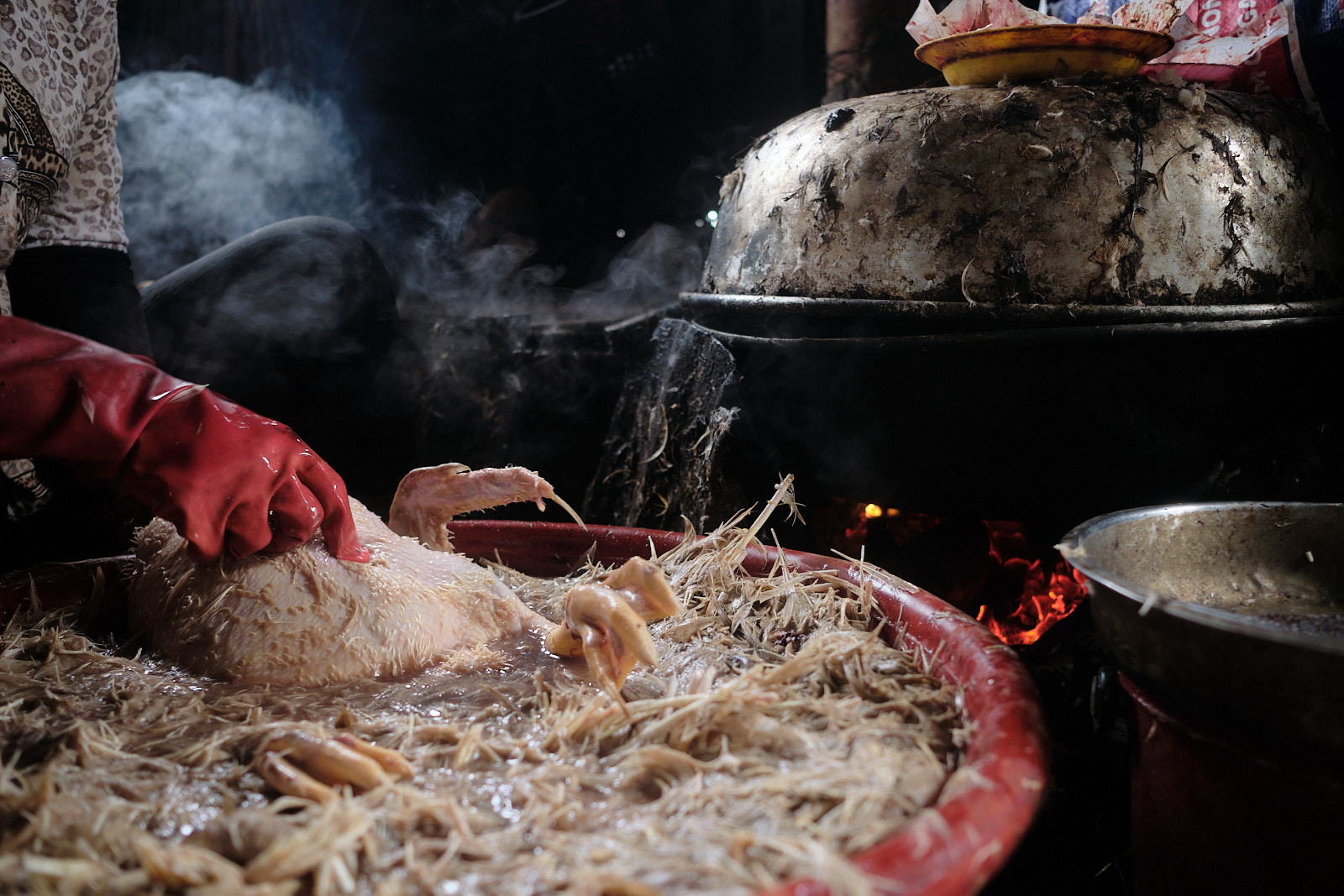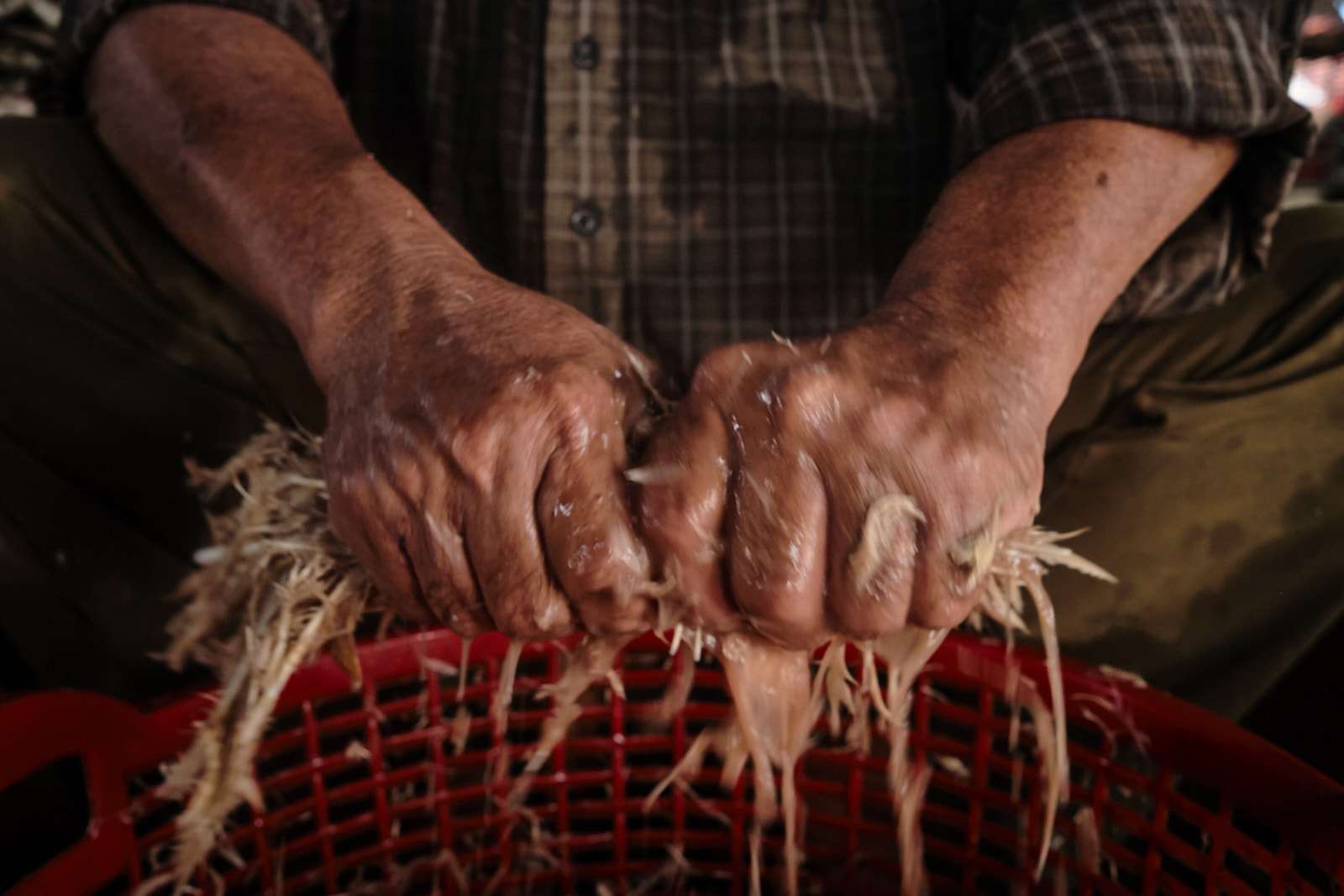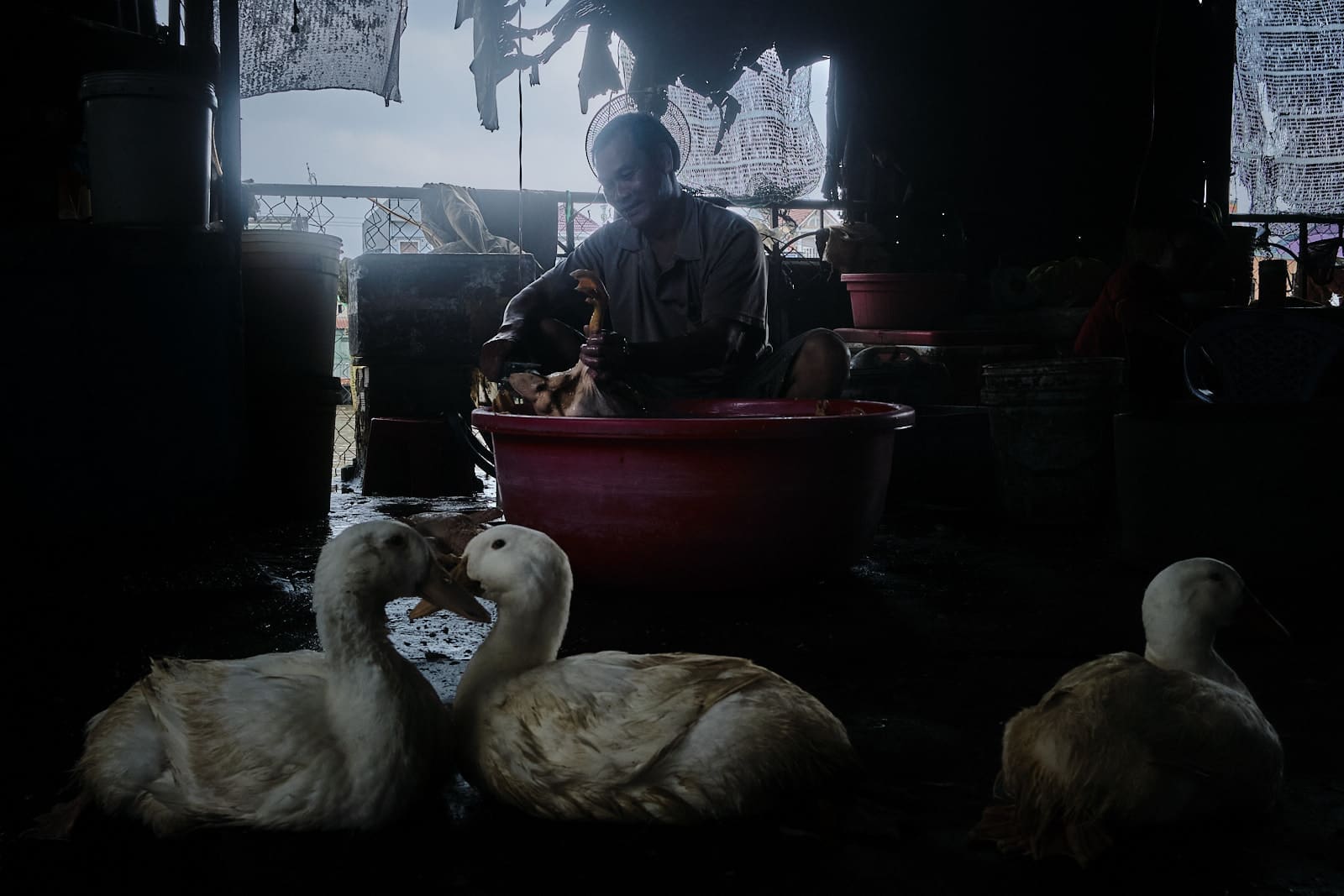There are often difficult contexts, which most often turn out to be complex to understand, in which nothing can be done except to ask questions without expecting an answer. There are usually painful situations, so unbearable, that sometimes it is necessary to accept them and to live through them to the end while dealing with the resulting suffering.
These and other thoughts flare up in me whenever I enter a Wet Market, in Asia. Markets where animals, in most cases birds and poultry, are slaughtered and their meat is presented on a stall ready to be sold, in an atmosphere marked by controversial normalcy that I cannot understand and, at the same time, am not at liberty to judge.
While Wet Markets are places where atrocities are committed against animals, they remain a tangible sign of local culture, where locals buy affordable food or simply go for a walk and meet their neighbours to chat and experience community life.


Walking among the stalls where freshly slaughtered meat is displayed, the smell of death pervades the nostrils and enters the gut. It is a sensation that only Nature, in all its infinite forms, can restore in response to how we, human beings, choose to interact with it. Yet, despite the impactful violence, there is no discernible nastiness for its own sake. Rather, a different view of life and death that is reserved for only a select few. Geese, chickens and any other kind of breeding birds are brought to these places, where they become spectators of their death, waiting for everything to end as soon as possible.



